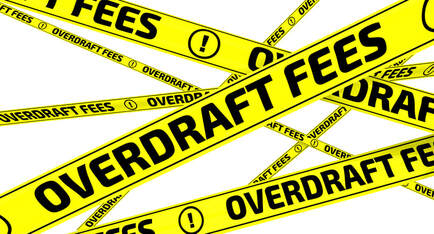 No one likes to get a “declined” message when using a debit card, but if you have ever faced a $30 plus overdraft fee, you know it is a situation you would also like to avoid. Almost every financial institution offers some kind of “overdraft protection,” also called “overdraft privilege,” which allows you to spend more than what’s currently available in your checking account. Given the charge that usually accompanies these overages, bank customers should think of the service as a safety net that allows access to funds when you’ve made an error balancing your checking account or you’re in need of funds before your next deposit. While incurring an overdraft fee is never ideal, there are ways that you can avoid doing so unwillingly. Or, if you find yourself in need of the service, there are ways to use it wisely. Below are a few tips to consider:
Opt Out At one point or another, you may have “opted in” to overdraft fees on ATM transactions and debit card purchases. All bank customers have the option of “opting out” of the service, which will lead your bank to decline these transactions rather than cover them with funds beyond your current balance. Know Your Real Balance While many of us are in the habit of checking our bank balances online to determine whether we have money to spend in real time, it’s easy to get in trouble by relying solely on that displayed amount. If you use your debit card to buy gas, for instance, it usually takes several days for the full charge to come out of your account. Rather than relying on online balances, it’s safer to use the account ledger that comes with a checkbook to keep a running tally of what you’ve already spent, including online payments that may not be deducted from your account yet. This extra step will help determine the real amount you have to spend and keep you out of unnecessary trouble. Balance Your Account Monthly Balancing your account monthly will not only help prevent overdrafts, but will also help ensure you identify unauthorized transactions. You only have so many days after receiving your statement to let your bank know about an unauthorized transaction. By picking a day at the beginning of each month to balance your account, you will have a firm grasp on where your money went that month, if the charges are correct and how much you have left. If you don't know how to balance your account, ask your community banker who will gladly teach you the process. Ask for Forgiveness Overdrawing your account can be frustrating and embarrassing, but it happens sometimes. However, if you never (or very rarely) overdraw your account, it doesn’t hurt to ask your bank to waive the fee. Many banks are understanding of the rare mistake and are willing to both waive the fee and help you figure out what went wrong to avoid future missteps. Set Up An Alternative “Backstop” If you have money in a savings account, it’s fairly simple to avoid using overdraft protection. Ask your bank if you can connect your savings account to your checking account so that if you overdraw the checking account, money will automatically roll over from the savings account to cover the expense. While some banks charge a nominal fee every time you use this service, the fee is typically lower than a full overdraft fee. Minimize the Fees If you truly need to access your overdraft safety net before your next deposit, you’re better off withdrawing the total funds you foresee needing in one transaction, rather than using your debit card at multiple locations. Most banks assess a full overdraft fee for each charge or withdrawal made while an account is overdrawn. That means it’s cheaper for you to make one large cash withdrawal to access emergency funds rather than making several smaller withdrawals over the course of a few days until your account is replenished. This information is provided with the understanding that the association is not engaged in rendering specific legal, accounting, or other professional services. If specific expert assistance is required, the services of a competent, professional person should be sought. Provided as a public service by the Pennsylvania Association of Community Bankers. Comments are closed.
|
AuthorWrite something about yourself. No need to be fancy, just an overview. Archives
December 2017
Categories
All
|
|
Pennsylvania Association of Community Bankers
800 N. 3rd Street, Suite 304 Harrisburg, PA 17102 Phone: (717) 231-7447 [email protected] | sitemap (C) All Rights Reserved Our Privacy Policy Our Copyright Policy |
"To empower community banks to make positive impact within the communities they serve."
|
